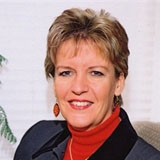Fly high in the design world

Allison McSparron has identified the personality types that a design group needs to soar above its rivals in the creative business world
Given half a chance I suspect most designers would spend all day just being creative. However, in the real world there’s a need to make money, so creativity must go hand-in- hand with the business of making a profit. As the author Stuart Wilde said, ‘Life is so simple really. Think through what people want, invite them to get it from you, and when they show up, bill ’em!’ This lesson is one that design consultancies ought to remember.
A design group’s success depends on the quality of its leadership, yet we see common factors that prevent consultancies from becoming the dream groups their owners want them to be. Some fail to plan growth, or they do not understand the complexities of their business or the motivations of their owners, employees or clients.
Many don’t have the talent to find, win and keep new, profitable and motivational clients. Equally, many can’t attract and retain the talented staff needed to grow the business. Also, unfortunately for them, the boredom factor of running the day-to-day aspects of a consultancy sets in long before success arrives.
The underlying reasons for this are not about talent or ability, but have more to do with the owner’s psyche, which may inhibit their consultancy’s growth. We have developed new insights into the typical personality types of consultancy owners and think this is an important explanatory factor in the success of a design business.
For creative groups, we regularly come across three different personality types that we call: Pilots, Cabin Crew and Flight Engineers. Each one is capable of building a consultancy; but as with flying an aeroplane, some will find it harder than others. Ideally, we encourage all leaders to have complementary support teams comprising each of the personality types.
Typically, the characteristics of these leaders are:
• Pilots – these leaders know how to set and achieve visions and goals, they work with and through people, cope with (and demand) change and variety, create challenging and unorthodox solutions to problems and are motivated by material results and money. They succeed if they learn how to act in a consultative manner, but will fail if they become unreasonably aggressive and demanding. They are great at getting to where they want to go but sometimes it is at the expense of those around them.
• Cabin staff – typically democratic, friendly and persuasive leaders, they are motivated by public recognition. They will succeed if they pay enough attention to detailed commercial issues, but will fail if they become too democratic or constantly flit from one unresolved issue to another. They are great at managing people, but don’t always know where they are going or how to get there.
• Engineers – seen as ‘expert’ leaders, their motivation comes through perfectionism and adherence to detail. Success for them comes if they learn to see the bigger picture while ignoring unnecessary detail. Failure can result if they try to do everything themselves or fail to build the teams and long-term relationships that are necessary to help them delegate their workloads.
In the creative sector there are many Cabin staff, some Pilots and only a few Engineers. While all three have an equal chance of success, it appears that Pilots do better than others because they have a clearer sense of where they are going, how to get there and what team they need to achieve their long-term goals.
So what needs to be done to help leaders raise their game from pedestrian to magnificent? Growing a consultancy requires a multi-faceted approach: identifying the right prospects, winning profitable new clients and managing them.
To achieve this, leaders must:
• Develop a vision to give the group a sense of direction;
• Develop leadership skills to drive the growth agenda forward;
• Select a target market that is prepared to pay a premium for that service;
• Select a service offering in which the consultancy excels;
• Promote it in a way that enhances their reputation and reflects the value they offer;
• Hire business brains to focus on growing the business while they focus on the creative side.
Our experience shows that consultancies will grow best when a leader accepts their limitations and they have a clear vision for their group and the energy and motivation to make it happen. It is also critical that the consultancy offers a product or service that clients are prepared to pay for.
Allison McSparron is managing director of Consultrix
Good commercial leaders strengthen:
• Their consultancy’s ability to win new business
• Commercial and process controls
• Ambitions for their consultancy
• Drive and ability to get things done
• Talented employees
• Product/service differentiation
• Team leadership
-
Post a comment




